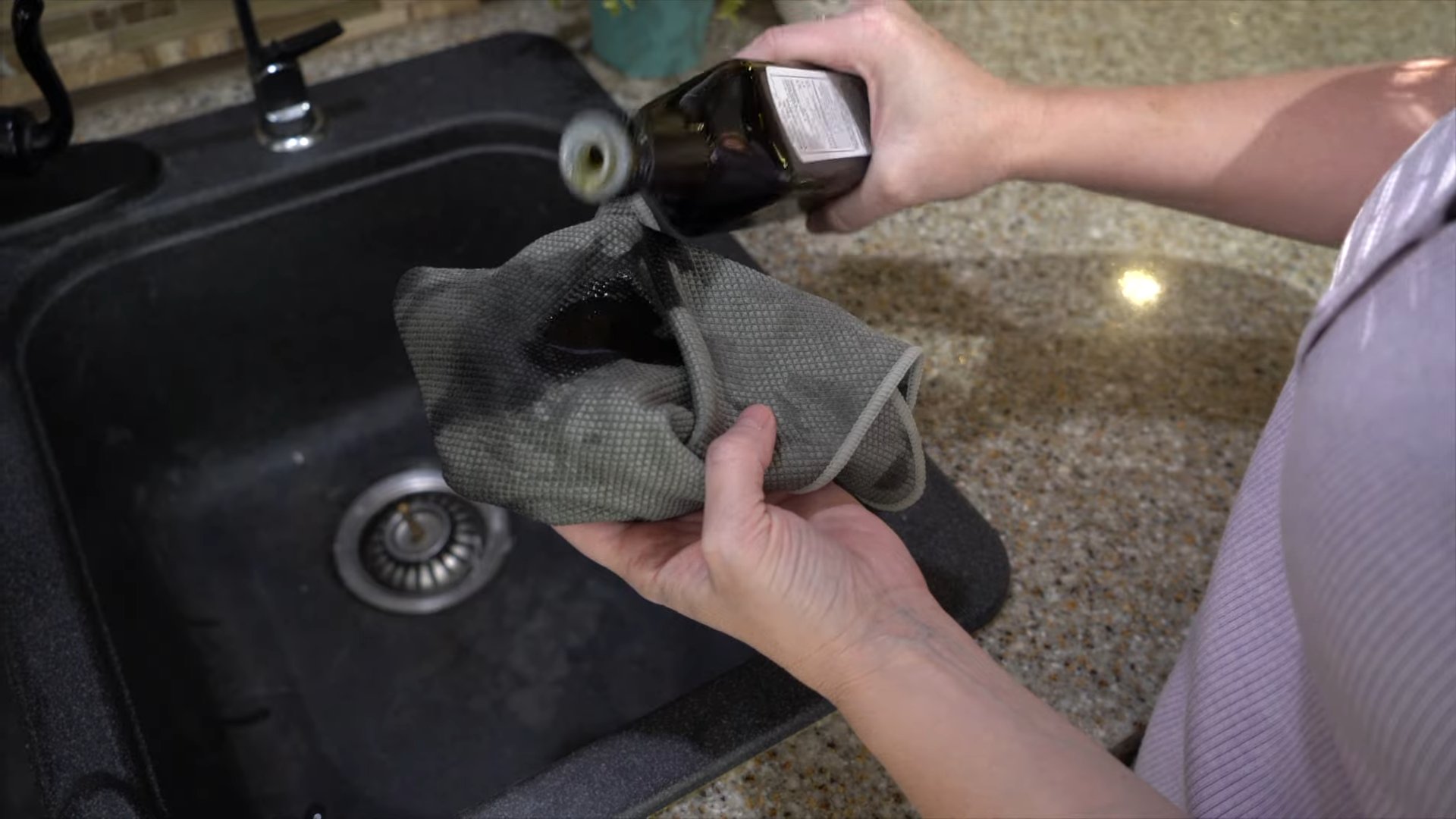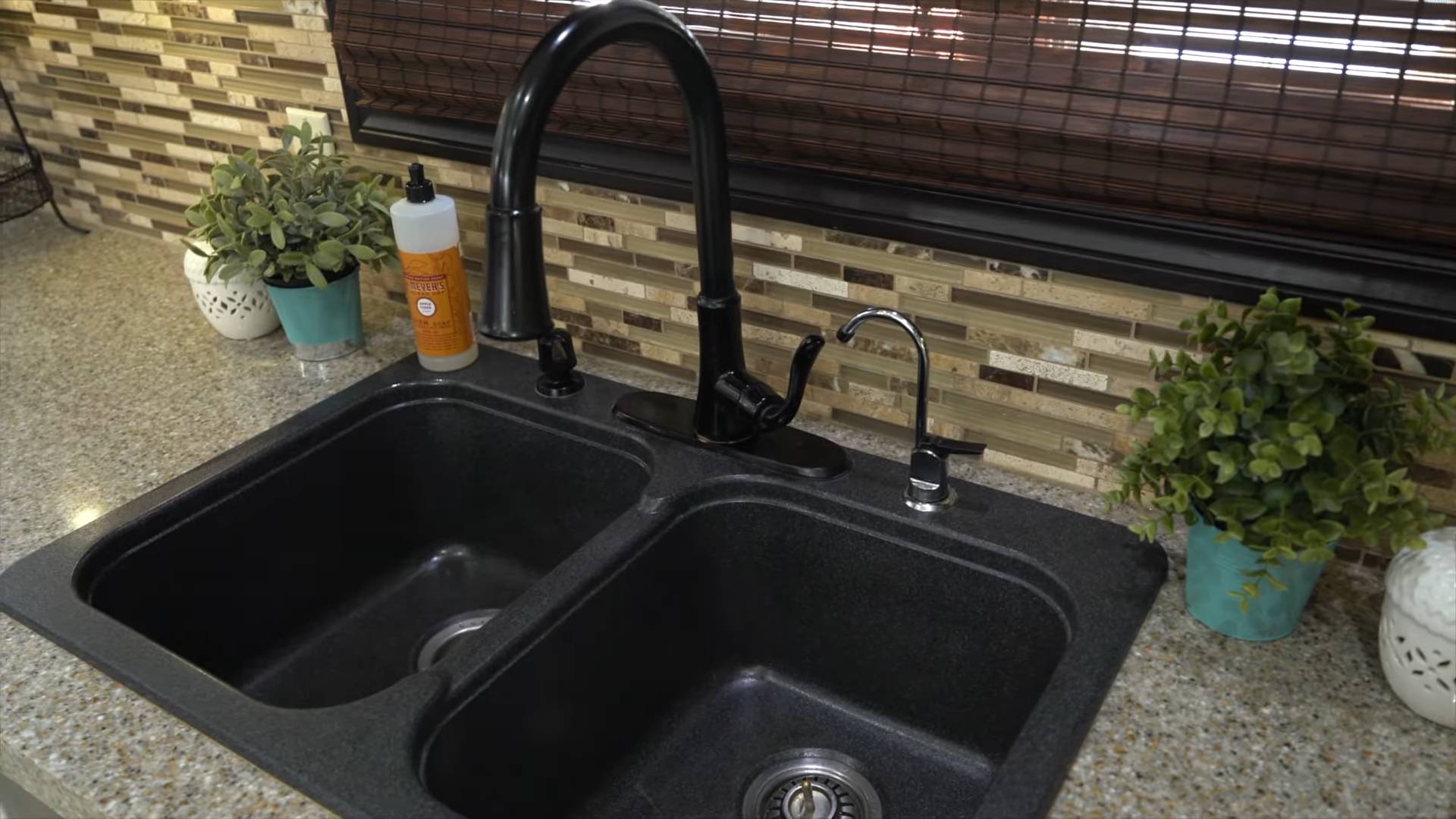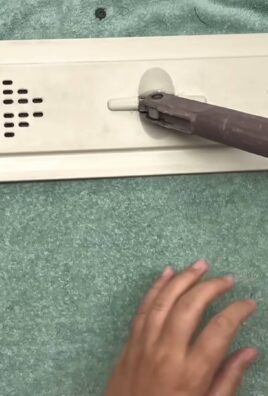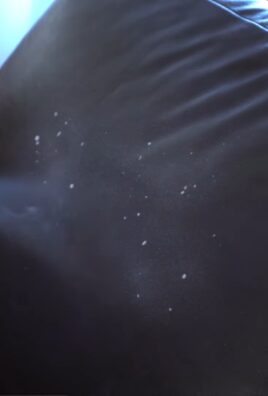Olive oil granite cleaner: sounds too good to be true, right? I know, I thought so too! But trust me, this simple DIY trick will leave your granite countertops sparkling without harsh chemicals. For centuries, people have sought natural ways to clean and maintain their homes, drawing on readily available resources like olive oil. In ancient Mediterranean cultures, olive oil was prized not only for its culinary uses but also for its cleansing and protective properties.
Today, we’re rediscovering the wisdom of these time-tested methods. Let’s face it, commercial granite cleaners can be expensive and often contain ingredients we’d rather not expose our families to. Plus, who wants to spend a fortune on something you can easily whip up at home with just a few ingredients? This olive oil granite cleaner recipe is not only cost-effective and eco-friendly, but it’s also incredibly easy to make. I’m going to show you how to create a streak-free shine that will have your kitchen looking its absolute best. Get ready to ditch the store-bought stuff and embrace the power of natural cleaning!

DIY Granite Cleaner with Olive Oil: Shine On!
Hey there, fellow DIY enthusiasts! Are you tired of dull granite countertops? Do you want to avoid harsh chemicals and expensive store-bought cleaners? Well, you’ve come to the right place! I’m going to share my secret weapon for sparkling, streak-free granite: a simple, all-natural cleaner using olive oil! Yes, you read that right – olive oil! It’s not just for cooking; it’s a fantastic granite polisher. This recipe is super easy, cost-effective, and will leave your granite looking absolutely gorgeous. Let’s get started!
What You’ll Need: The Essential Supplies
Before we dive in, let’s gather our supplies. This is a pretty straightforward recipe, so you probably already have most of these items on hand.
* **Spray Bottle:** A clean, empty spray bottle is essential for easy application. I prefer a bottle with an adjustable nozzle so I can control the spray pattern.
* **Olive Oil:** Extra virgin olive oil is my go-to, but any type of olive oil will work. The olive oil adds a beautiful shine and helps to protect the granite.
* **Rubbing Alcohol (Isopropyl Alcohol):** This helps to disinfect and evaporate quickly, preventing streaks. Aim for a concentration of 70% or higher.
* **Dish Soap:** A mild dish soap is needed to cut through grease and grime. I recommend using a natural or unscented variety to avoid any residue or strong smells.
* **Water:** Distilled water is best to prevent mineral buildup, but tap water will work in a pinch.
* **Essential Oil (Optional):** For a pleasant scent, you can add a few drops of your favorite essential oil. Lavender, lemon, or grapefruit are great choices.
* **Microfiber Cloths:** These are crucial for streak-free cleaning. Avoid using paper towels, as they can leave lint behind.
* **Measuring Spoons/Cups:** To ensure accurate measurements, grab your measuring spoons and cups.
The Magic Formula: Mixing the Granite Cleaner
Now for the fun part: creating our granite cleaning solution! This recipe is easy to adjust based on your needs, but I’ve found this ratio works perfectly for me.
1. **Prepare the Spray Bottle:** Make sure your spray bottle is clean and dry. Any residue inside could affect the performance of the cleaner.
2. **Add the Rubbing Alcohol:** Pour 1/4 cup of rubbing alcohol into the spray bottle. The alcohol will help to disinfect the surface and prevent streaks.
3. **Add the Water:** Next, add 1 1/2 cups of water to the spray bottle. Distilled water is ideal, but tap water is fine if that’s what you have.
4. **Add the Dish Soap:** Add 1/4 teaspoon of mild dish soap. Be careful not to add too much, as it can leave a soapy residue.
5. **Add the Olive Oil:** Now for the star ingredient! Add 2 teaspoons of olive oil to the spray bottle. This will give your granite a beautiful shine.
6. **Add Essential Oil (Optional):** If you’re using essential oil, add 5-10 drops to the spray bottle. I love using lemon essential oil for its fresh, clean scent.
7. **Mix Thoroughly:** Close the spray bottle tightly and shake well to combine all the ingredients. Make sure everything is properly mixed before using.
Cleaning Time: Applying the Granite Cleaner
Alright, we’ve got our cleaner ready to go! Now it’s time to put it to work. Follow these steps for a sparkling clean granite surface.
1. **Clear the Countertops:** Remove any items from your granite countertops, such as appliances, dishes, and decorations. This will give you a clear surface to work with.
2. **Dust the Surface:** Use a dry microfiber cloth to dust the granite surface. This will remove any loose dirt or debris.
3. **Spray the Cleaner:** Lightly spray the granite cleaner onto the surface. Avoid oversaturating the area, as this can lead to streaks.
4. **Wipe with a Microfiber Cloth:** Immediately wipe the sprayed area with a clean microfiber cloth. Use a circular motion to remove any dirt or grime.
5. **Buff to Shine:** After wiping, use a dry microfiber cloth to buff the surface to a shine. This will remove any remaining streaks and leave your granite looking beautiful.
6. **Repeat as Needed:** If there are any stubborn stains or spots, repeat the process. You may need to let the cleaner sit for a few minutes before wiping.
Dealing with Stubborn Stains: Extra Cleaning Power
Sometimes, you’ll encounter stubborn stains that require a little extra attention. Here are a few tips for tackling those tough spots.
* **Baking Soda Paste:** For dried-on food or grease stains, make a paste of baking soda and water. Apply the paste to the stain, let it sit for 15-20 minutes, and then wipe away with a damp cloth.
* **Hydrogen Peroxide:** For stains caused by coffee, tea, or juice, try using hydrogen peroxide. Apply a small amount to the stain, let it sit for a few minutes, and then wipe away with a damp cloth.
* **Avoid Abrasive Cleaners:** Never use abrasive cleaners, such as scouring pads or steel wool, on granite. These can scratch and damage the surface.
Maintaining Your Granite: Keeping it Sparkling
Once you’ve cleaned your granite, you’ll want to keep it looking its best. Here are a few tips for maintaining your granite countertops.
* **Wipe Up Spills Immediately:** The best way to prevent stains is to wipe up spills as soon as they happen. Use a clean cloth or paper towel to absorb the spill.
* **Use Cutting Boards:** Always use cutting boards when preparing food to protect your granite from scratches and stains.
* **Avoid Harsh Chemicals:** Avoid using harsh chemicals, such as bleach or ammonia, on granite. These can damage the surface and dull the shine.
* **Regular Cleaning:** Clean your granite countertops regularly with the DIY cleaner to keep them looking their best. I recommend cleaning them at least once a week, or more often if needed.
* **Sealing (If Necessary):** While many granite surfaces are sealed during installation, the sealant can wear down over time. Test your granite’s seal by placing a few drops of water on the surface. If the water beads up, the seal is still intact. If the water soaks in, it’s time to reseal your granite. Consult a professional for resealing recommendations.
Troubleshooting: Common Issues and Solutions
Even with the best recipe, you might encounter a few issues. Here’s how to troubleshoot common problems.
* **Streaks:** If you’re experiencing streaks, try using less cleaner or buffing the surface more thoroughly with a dry microfiber cloth. Make sure you’re using a clean microfiber cloth each time you wipe.
* **Residue:** If you’re noticing a residue, you may be using too much dish soap. Try reducing the amount of dish soap in the recipe.
* **Dullness:** If your granite is looking dull, it may be time to reseal it. Consult a professional for resealing recommendations. Also, ensure you are using enough olive oil in your cleaning solution.
* **Smell:** If you don’t like the smell of the cleaner, try using a different essential oil or omitting it altogether.
Why This Works: The Science Behind the Shine
You might be wondering why this simple recipe works so well. Here’s a little bit of the science behind it.
* **Olive Oil:** Olive oil acts as a natural polisher, adding shine and protecting the granite from scratches and stains.
* **Rubbing Alcohol:** Rubbing alcohol helps to disinfect the surface and evaporate quickly, preventing streaks.
* **Dish Soap:** Dish soap cuts through grease and grime, removing dirt and debris.
* **Water:** Water helps to dilute the other ingredients and create a balanced cleaning solution.
* **Essential Oil:** Essential oil adds a pleasant scent and can also have antibacterial properties.
Alternative Recipes: Tweaking for Your Needs
While I love my go-to recipe, there are a few variations you can try to customize it to your needs.
* **Vinegar-Free Version:** If you’re sensitive to vinegar, you can omit it from the recipe. Simply increase the amount of rubbing alcohol or water to compensate.
* **Lemon Juice Boost:** For extra cleaning power, add a tablespoon of lemon juice to the recipe. Lemon juice is a natural disinfectant and can help to remove stubborn stains.
* **Castile Soap Substitute:** If you prefer to use castile soap instead of dish soap, you can substitute it in the recipe. Use the same amount of castile soap as you would dish soap.
Safety First: Important Precautions
While this DIY cleaner is generally safe, it’s important to take a few precautions.
* **Test in an Inconspicuous Area:** Before using the cleaner on your entire countertop, test it in an inconspicuous area to make sure it doesn’t damage the surface.

Conclusion
So, there you have it! This simple, yet incredibly effective, DIY olive oil granite cleaner is a game-changer for anyone looking to maintain the beauty and luster of their granite countertops without resorting to harsh chemicals or expensive commercial products. We’ve explored how the natural properties of olive oil, combined with the cleaning power of dish soap and the refreshing scent of essential oils, create a solution that not only cleans but also polishes and protects your granite surfaces.
Why is this DIY trick a must-try? Because it’s cost-effective, environmentally friendly, and incredibly easy to make. You likely already have the ingredients in your pantry! More importantly, it’s safe for your family and pets, unlike many commercial cleaners that contain potentially harmful chemicals. The gentle formula won’t strip away the sealant on your granite, ensuring its longevity and preventing staining.
Beyond the basic recipe, there’s plenty of room for customization. Experiment with different essential oils to create your signature scent. Lavender, lemon, orange, and peppermint are all excellent choices that not only smell wonderful but also offer additional cleaning and antibacterial properties. For a deeper clean, you can add a tablespoon of white vinegar to the mixture, but always test it in an inconspicuous area first to ensure it doesn’t affect the granite’s finish.
Another variation involves using a different type of oil. While olive oil is our preferred choice due to its readily available nature and excellent polishing properties, you could also try using coconut oil or almond oil. Keep in mind that coconut oil can solidify at cooler temperatures, so you might need to warm the mixture slightly before using it. Almond oil is a lighter oil that absorbs quickly, leaving a less oily residue.
We understand that switching to a DIY cleaner can feel daunting, but we encourage you to give this olive oil granite cleaner a try. You’ll be amazed at how effectively it cleans and polishes your granite surfaces, leaving them sparkling and streak-free. Plus, you’ll have the satisfaction of knowing that you’re using a safe and natural product in your home.
Don’t just take our word for it! We’re confident that you’ll love this DIY solution as much as we do. Once you’ve tried it, we’d love to hear about your experience. Share your results, variations, and any tips you’ve discovered in the comments below. Let’s build a community of granite-cleaning enthusiasts who are committed to using safe, effective, and environmentally friendly methods. Your feedback will help others discover the benefits of this simple yet powerful DIY trick. Let us know what essential oil combinations you loved the most! Did you find a specific ratio of ingredients that worked best for your granite? We’re all ears!
Remember, maintaining the beauty of your granite countertops doesn’t have to be a chore. With this easy-to-make olive oil granite cleaner, you can keep your surfaces looking their best while also protecting your health and the environment. So, ditch the harsh chemicals and embrace the power of natural ingredients. Your granite will thank you for it!
Frequently Asked Questions (FAQ)
What type of olive oil should I use for this cleaner?
Extra virgin olive oil is generally recommended for its purity and beneficial properties. However, you can also use regular olive oil or light olive oil. The key is to ensure that the olive oil is of good quality and doesn’t contain any additives that could potentially damage your granite. Avoid using flavored olive oils, as they may leave a residue or stain.
How often should I use this DIY granite cleaner?
The frequency of cleaning depends on how often you use your granite countertops and how much dirt and grime they accumulate. For daily cleaning, a quick wipe-down with a damp cloth is usually sufficient. However, for a more thorough cleaning and polishing, you can use this DIY olive oil granite cleaner once or twice a week. Avoid over-cleaning, as it can potentially strip away the sealant over time.
Can I use this cleaner on other types of stone surfaces?
While this cleaner is specifically formulated for granite, it may also be suitable for other types of stone surfaces, such as marble or quartz. However, it’s always best to test the cleaner in an inconspicuous area first to ensure that it doesn’t damage or discolor the surface. Marble, in particular, is more porous and sensitive than granite, so it’s important to proceed with caution. If you’re unsure, consult with a professional stone care specialist.
Will this cleaner leave an oily residue on my granite?
When used correctly, this cleaner should not leave an oily residue. The dish soap helps to emulsify the olive oil, allowing it to be easily wiped away. However, if you do notice a slight residue, simply wipe the surface again with a clean, damp cloth. Using too much olive oil can also contribute to residue, so start with a small amount and add more as needed.
Can I store the leftover cleaner?
Yes, you can store the leftover cleaner in an airtight container at room temperature. It’s best to use a dark-colored glass bottle to protect the essential oils from light degradation. The cleaner should remain effective for several weeks. If you notice any changes in color, odor, or consistency, it’s best to discard the cleaner and make a fresh batch.
What if I don’t have essential oils? Can I still make the cleaner?
Yes, you can still make the cleaner without essential oils. The essential oils are primarily added for their fragrance and potential antibacterial properties, but they are not essential for the cleaning effectiveness of the mixture. If you don’t have essential oils, simply omit them from the recipe. The olive oil and dish soap will still provide excellent cleaning and polishing power.
My granite has a stubborn stain. Will this cleaner remove it?
This DIY olive oil granite cleaner is effective for removing everyday dirt and grime, but it may not be strong enough to remove stubborn stains. For tough stains, you may need to use a specialized granite stain remover or consult with a professional stone care specialist. Avoid using harsh chemicals or abrasive cleaners, as they can damage the granite’s surface. For specific stains, like oil-based stains, you can try making a paste of baking soda and water and applying it to the stain for several hours before wiping it away.
How do I know if my granite is sealed?
Most granite countertops are sealed during installation to protect them from staining and damage. However, the sealant can wear down over time, so it’s important to re-seal your granite periodically. To test if your granite is sealed, place a few drops of water on the surface. If the water beads up, the granite is likely sealed. If the water soaks into the granite, it’s time to re-seal it. You can purchase granite sealant at most home improvement stores.
Can I use this cleaner on my granite sink?
Yes, you can use this cleaner on your granite sink. However, be sure to rinse the sink thoroughly after cleaning to remove any soap residue. Avoid using abrasive scrub brushes or scouring pads, as they can scratch the surface of the sink. A soft cloth or sponge is best for cleaning granite sinks.
Is this cleaner safe for septic systems?
Yes, this cleaner is generally safe for septic systems. The ingredients are biodegradable and won’t harm the beneficial bacteria in your septic tank. However, it’s always a good idea to use any cleaning product sparingly when you have a septic system. Avoid pouring large amounts of cleaner down the drain at once.





Leave a Comment